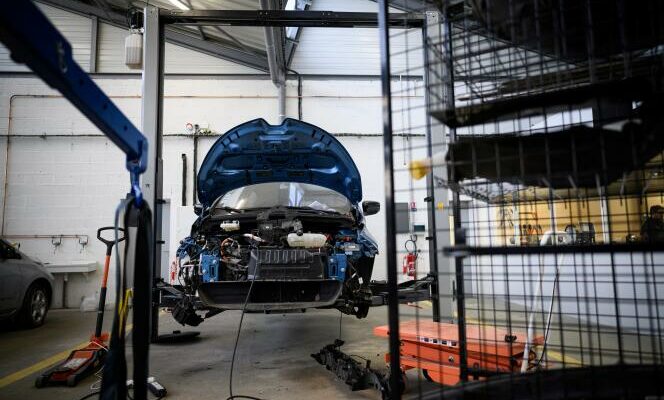Housing, energy, transport, home insurance, credit: all these items of household expenditure are affected by the phenomenon of “double poverty”, but this is not inevitable. This is the conclusion of the study published on Thursday 1er February, La Banque Postale and the Action Tank Entreprise & Pauvreté association, to take stock of the phenomenon but also to show the need to increase support mechanisms, both public and private, to mitigate its effects.
The double penalty of poverty, identified in the 1960s, particularly in the United States and the United Kingdom, refers to the fact that the poorest households, beyond having lower purchasing power, are often penalized by the need to pay more for certain goods or services than the rest of the population.
At the origin of this phenomenon are around twenty well-identified factors, including volume effects when purchasing in smaller quantities increases the overall bill, exclusion when the risk profile and lack of cash flow limit access to certain quality goods or services, or lack of information and location.
There is no shortage of examples, from older vehicles, whose cost of use increases over time, to bank fees charged on an overdraft account, including insurance “surcharges” observed in certain municipalities, or even in certain configurations. family.
“Inflation that only affects the poor”
In 2023, shows the study carried out in partnership with Boston Consulting Group, this double penalty represented an excess expenditure of 700 euros on average for the poorest French households: 745 euros for those in the first decile – the 10% of the population receiving the lowest incomes – and 640 euros for those in the second decile. Amounts which correspond respectively to twelve and eight weeks of food purchases.
The double penalty “is an insidious phenomenon”explains Jacques Berger, director of the Action Tank Enterprise & Poverty: “For a large minority of households in the first decile, this can represent 10% of their resources. It is in a way a specific inflation which only affects the poor. » This inflation contributes both to the deterioration of living conditions and to the reduction of the “remainder to live”, the residual purchasing power once the constrained expenses have been assumed.
For 20% of households in the first two deciles, the double penalty represents more than 1,000 euros per year and, among the most affected profiles, are students, beneficiaries of minimum social benefits and people with disabilities but also farmers, households in the process of acquiring property living in small, poorly insulated homes.
You have 50% of this article left to read. The rest is reserved for subscribers.
